Today Current Affairs: 14th September 2022 for UPSC IAS exams, State PSC exams, SSC CGL, State SSC, RRB, Railways, Banking Exam & IBPS, etc
Table of Contents
India’s Retail Inflation:

India’s retail inflation resurged to 7% in August from 6.71% in July, fuelled by a 7.62% uptick in food prices paid by consumers, even as industrial output growth in July dropped to the lowest level since April at just 2.4%, with output levels dropping 2.75% month on month.
- This is the eighth successive month that retail inflation has stayed above the central bank’s upper tolerance threshold of 6% inflation for the economy, and constitutes a setback to households’ spending power among the poorer sections.
- Rural inflation that was at 6.8% in July, saw a sharper rise than urban inflation in August, rising to 7.15%.
- Urban consumers’ inflation rate moved up from 6.49% in July to 6.72%.
- The uptick in inflation was largely driven by “a broad-based rise across the food segment”, with a higher inflation in cereals, pulses, milk, fruits, vegetables and prepared meals and snacks.
Raktdaan Amrit Mahotsav:
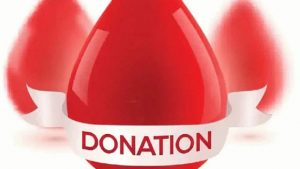
The Union Health Ministry is planning to launch a nationwide, mega voluntary blood donation drive, called the Raktdaan Amrit Mahotsav, on September 17, with an aim to collect one lakh units of blood.
- The drive hopes to create a database of donors who can be called upon at times of emergency.
- The Ministry has sent a letter to all the States and the Union Territories, stating that the drive would continue till October 1, the National Voluntary Blood Donation Day (NVBDD).
- Registrations for blood donation can be done on the Aarogya Setu portal under Raktdaan Amrit Mahotsav which calls people to donate blood and be a part of Prime Minister’s mission for humanity.
- A live dashboard will be operationalised on the e-RaktKosh web portal for tracking the number of blood units donated/collected in each State and Union Territory.
World Dairy Summit 2022:
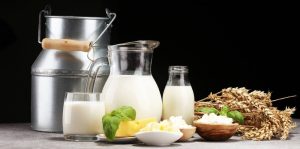
Prime Minister inaugurated the International Dairy Federation World Dairy Summit (IDF WDS) 2022 at India Expo Centre & Mart, Greater Noida.
- International Dairy Federation is the leading source of scientific and technical expertise for all stakeholders of the dairy chain.
- Since 1903, IDF’s network of dairy experts has provided a mechanism for the dairy sector to reach a global consensus on how to help feed the world with safe and sustainable dairy products.
- The IDF World Dairy Summit is an annual meeting of the global dairy sector, bringing together approximately 1500 participants from all over the world.
- The last such Summit was held in India about half a century ago in 1974.
- The theme for this year is Dairy for Nutrition and Livelihood.
- The IDF World Dairy Summit will provide a forum to industry experts to share knowledge and ideas on how the sector can contribute to nourish the world with safe and sustainable dairying.
- Participants will get an opportunity to acquire knowledge on latest research findings and experiences relevant to the global dairy sector in the broadest sense.
Agricultural And Processed Food Exports : Data
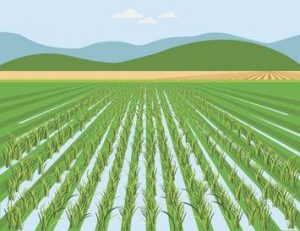
The Directorate General of Commercial Intelligence and Statistics (DGCI&S) has released the data of India’s Agricultural and processed food products exports for the first quarter of current Fiscal (April-July 2022-23).
- DGCI&S, under the Ministry of Commerce, Government of India, is the pioneer official organization for collection, compilation and dissemination of India’s Trade Statistics and Commercial Information.
- India’s Agricultural and processed food products exports rose by 30 % to USD 9.6 billion during in the first four months of the current Financial Year 2022-23 in comparison to the corresponding period of FY 2021-22.
- For 2022-23, an export target of USD 23.56 billion has been fixed for the agricultural and processed food products basket.
- Exports of fruits and vegetables registered a 4 % growth during the period.
- Basmati Rice exports witnessed a growth of 29.13 %.
- Exports of non-Basmati rice rose by 9.24% during the period under review to USD 2.08 billion.
- The export of dairy products recorded a growth of 61.91% to USD 247.
Wonder On Wheels:
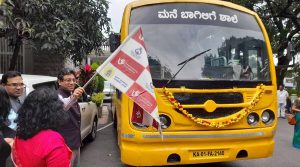
Bruhat Bengaluru Mahanagara Palike (BBMP) commissioner launched ‘Wonder on Wheels’, an initiative to introduce art and cultural activities for Anganwadi children, in collaboration with NGO Freethinking Foundation.
- This is the continuation of the Montessori School on Wheels programme launched before.
- The bus is furnished with detachable seating, shelves and storage to allow for free creative movement. Art, craft, musical instruments, library books and audio-visual systems, and permanent art and craft teachers will be present on the bus.
- The bus will be travelling across Bengaluru and stop by Anganwadis where children will be engaged for one hour in activities related to theatre, music, art, and culture.
Appointments Of Judges In High Courts:
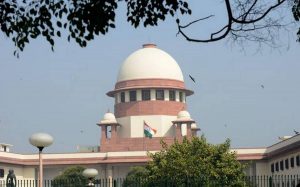
The Supreme Court Collegium led by Chief Justice of India (CJI) U.U. Lalit has recommended eight names for appointment to the Bombay High Court. Six of them are judicial officers and two are advocates.
- If the government agrees with the Collegium, the judicial strength in the Bombay High Court will rise to 68 out of a total sanctioned strength of 94 judges.
- The Indian Judicial collegium system, where existing judges appoint judges to the nation’s constitutional courts, has its genesis in, and continued basis resting on, three of its own judgments made by Supreme Court judges which are collectively known as the Three Judges Cases.
- P. Gupta v. Union of India – 1981 (also known as the Judges’ Transfer case)
- Supreme Court Advocates-on Record Association vs Union of India – 1993
- In re Special Reference 1 of 1998
Gyanvapi Mosque:
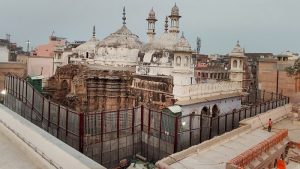
A Varanasi district court dismissed an application filed by the Anjuman Intezamia Masjid Committee challenging the maintainability of the suit filed by five Hindu women seeking the right to worship Hindu deities within the Gyanvapi mosque (located in Banaras, Uttar Pradesh) premises all year round.
- District judge A.K. Vishvesha ruled that neither the Places of Worship Act, 1991, nor the Waqf Act, 1995, nor the U.P. Shri Kashi Vishwanath Temple Act, 1983, bar the suit and that the “plaintiffs will have right to prove their averments by cogent evidence”.
- The suit, filed by Rakhi Singh and four other women, claimed Hindus had been worshipping Maa Shringar Gauri, Lord Ganesha and other visible and invisible deities daily at the said property till as recently as 1993, after which the Uttar Pradesh government restricted the worship to one day a year.
- The court noted that the suit filed by the Hindu women “is limited and confined to the right of worship as a civil right and fundamental right as well as customary and religious right”.
- The court emphasised that the suit neither sought a declaration or injunction over the property in question, nor did it seek the conversion of the mosque into a temple.
G7’s Price Cap On Russian Oil:

The Group of Seven countries is working to cap the price of Russian oil in an attempt to limit Moscow’s ability to fund its invasion of Ukraine, a plan analysts say could work in the long term but might boost oil prices in coming months.
- The G7 wealthy nations – the United States, Japan, Germany, Britain, France, Italy and Canada – and the EU are hammering out details of the plan.
- The G7 wants to enlist other countries, including India and China, which have been snapping up heavily-discounted oil from Russia since its Feb. 24 invasion of Ukraine
- Russia has managed to maintain its revenues through those increased crude sales to India and China. But even if India and China don’t join, a cap could help force down prices for Asia and other consumers.
EWS Quota:
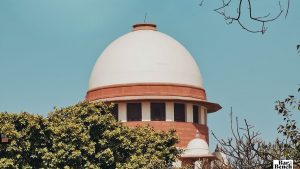
The Supreme Court will examine whether The Constitution (103rd Amendment) Act, which introduced a 10 per cent quota for Economically Weaker Sections (EWS) in government jobs and admissions, violates the basic structure of the Constitution.
- A five-judge Constitution Bench led by Chief Justice of India (CJI) U U Lalit decided to examine the following three key issues to ascertain the validity of the amendment:
- “Whether the 103rd Constitution Amendment can be said to breach the basic structure of the Constitution by permitting the state to make special provisions, including reservation, based on economic criteria”;
- “Whether the amendment can be said to breach the basic structure…by permitting the state to make special provisions in relation to admission to private unaided institutions”;
- “Whether the basic structure is violated by “excluding the SEBCs (Socially and Educationally Backward Classes)/ OBCs (Other Backward Classes)/ SCs (Scheduled Castes)/ STs (Scheduled Tribes) from the scope of EWS reservation”.
- The 103rd Amendment inserted Articles 15(6) and 16(6) in the Constitution to provide up to 10 per cent reservation to EWS other than backward classes, SCs, and STs in higher educational institutions and initial recruitment in government jobs.
PM Matsya Sampada Yojana (PMMSY):

Recently, the 2nd anniversary of PMMSY has been celebrated
- Launched in 2020
- Aim: To bring about a blue revolution through sustainable and responsible development of the fisheries sector in India.
- Ministry: Fisheries, Animal Husbandry and Dairying
- Timeline: FY 2020 to 2025
Key targets:
- Enhance fish production by an additional 70 lakh tonnes by 2024-25.
- Increase fisheries export earnings to Rs.1,00,000 crore by 2024-25.
- Double incomes of fishers and fish farmers.
- Reduce post-harvest losses from 20-25% to about 10%.
- Generate additional 55 lakhs of direct and indirect gainful employment opportunities in the fisheries sector and allied activities.




